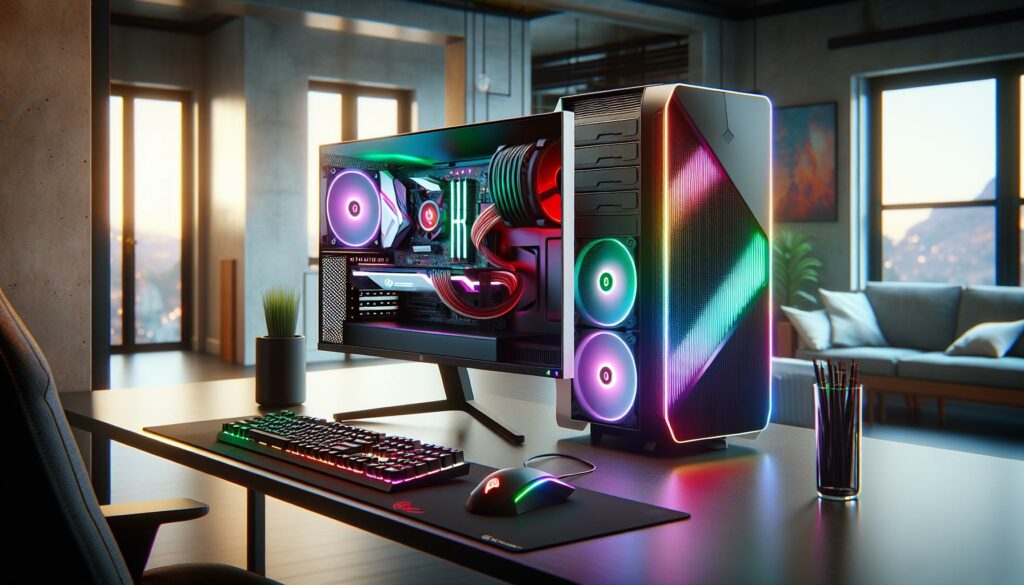As a gamer, is verizon home internet good for gaming? I know how crucial a reliable internet connection is for an immersive experience. When it comes to choosing a home internet provider, Verizon often pops up on the radar. With its growing fiber-optic network and competitive plans, I can’t help but wonder: is Verizon home internet really good for gaming?
In this article, I’ll dive into the features that make Verizon stand out, including speed, latency, and overall performance. Whether you’re a casual player or a hardcore gamer, understanding how Verizon stacks up can help you make the right choice for your gaming setup. Let’s explore if Verizon can truly deliver the seamless experience we all crave.
Key Takeaways
- Reliable Speed Options: Verizon offers both Fios Fiber Optic and 5G Home Internet, with speeds ranging from 300 Mbps to 940 Mbps, ideal for gaming needs.
- Low Latency: With latency as low as 5 ms for Fios and around 20 ms for 5G, Verizon provides a competitive edge for online gaming, especially in fast-paced genres.
- Robust Coverage: Fios is mainly available in urban and suburban areas, while 5G’s coverage is expanding rapidly, making it accessible in many major cities.
- Stable Connection: Verizon’s dedicated fiber-optic network ensures reliable performance with minimal fluctuations, crucial for uninterrupted gaming sessions.
- Customer Support: Verizon offers comprehensive customer support options tailored for gamers, including knowledgeable assistance and troubleshooting guides.
- Potential Drawbacks: Some users may face issues with data throttling and caps, particularly with the 5G Home Internet, which could impact gaming performance during peak times.
Is Verizon Home Internet Good for Gaming
Verizon Home Internet offers various options designed to meet the needs of users, including gamers. This section outlines the types of internet services and the coverage areas provided by Verizon.
Types of Internet Services Offered
Verizon offers two primary types of home internet services: Fios Fiber Optic and 5G Home Internet.
- Fios Fiber Optic: Fios delivers high-speed internet through a fiber-optic network. Speeds can reach up to 940 Mbps, making it suitable for streaming, gaming, and more.
- 5G Home Internet: This service uses Verizon’s 5G technology to provide internet access. It offers speeds that can vary but generally range between 300 to 1,000 Mbps, with low latency for an enhanced gaming experience.
Each type is crafted to deliver reliable performance, especially for data-intensive activities like gaming.
Coverage Areas and Availability
Verizon’s services are available in many regions, though coverage varies based on location.
- Fios Fiber Optic: Typically found in urban and suburban areas, Fios offers extensive coverage in states like New York, New Jersey, and Virginia.
- 5G Home Internet: Coverage for 5G is rapidly expanding, targeting urban locations first. As of late 2023, it’s available in select neighborhoods across many major cities.
To check availability, users can visit Verizon’s website and enter their address, ensuring they can access the plan that meets their gaming needs.
Performance Metrics for Gaming

Evaluating performance metrics for gaming reveals critical factors in determining if Verizon’s home internet can meet gamers’ needs. Key elements include latency, ping times, download speeds, and upload speeds.
Latency and Ping Times
Latency refers to the time it takes for data to travel from your device to the game server and back. It’s measured in milliseconds (ms), with lower values providing a competitive edge in gaming. Verizon’s Fios service typically boasts latency as low as 5 ms, while their 5G Home Internet maintains latency around 20 ms. These figures are beneficial, especially for fast-paced online games like first-person shooters or battle royale games, where every millisecond counts. For optimal performance, latency under 30 ms is ideal.
Download and Upload Speeds
Download speed influences how quickly game data transfers to your device, while upload speed affects how fast your actions reach the game server. Verizon’s Fios offers download speeds up to 940 Mbps and upload speeds up to 880 Mbps, delivering excellent performance for multiplayer gaming. The 5G Home Internet provides varying speeds, ranging from 300 to 1,000 Mbps for downloads and around 50 Mbps for uploads. Such speeds support gaming alongside streaming, updates, and other online activities without experiencing lag or interruptions. For an enhanced gaming experience, speeds above 25 Mbps are essential.
Pros of Verizon Home Internet for Gaming

Verizon Home Internet offers several advantages that cater specifically to gaming needs. From reliability to customer service, these features can enhance the gaming experience significantly.
Reliability and Stability
Verizon’s network ensures robust reliability and stability. Fios delivers a dedicated fiber-optic connection, providing consistent speeds and minimizing fluctuations during peak usage times. I experience fewer outages compared to traditional cable services, which is essential for uninterrupted gaming sessions. The 5G Home Internet option expands this reliability into urban areas, enabling gamers to enjoy solid connections even in densely populated regions. When latency drops below 30 ms, it directly enhances game responsiveness, making Verizon a worthwhile choice for serious gamers.
Customer Support and Service
Verizon’s customer support stands out in the home internet market. Support channels include live chat, phone assistance, and online resources, allowing quick resolution of any issues that arise. I find the support team knowledgeable about gaming-related queries, which is a bonus. Additionally, Verizon offers comprehensive troubleshooting guides on their website, helping gamers optimize their connection for the best performance. Their commitment to customer service adds peace of mind, ensuring that any disruptions can be addressed swiftly, allowing me to focus on my gaming.
Cons of Verizon Home Internet for Gaming

Despite the advantages of Verizon Home Internet for gaming, several drawbacks may hinder the overall experience.
Potential Throttling
Potential throttling poses a risk for gamers relying on Verizon’s services. During high-traffic periods, Verizon may limit bandwidth to manage network congestion. Throttling can lead to increased latency and slower speeds, directly affecting gaming performance. Competitive gamers experience frustrations as consistent speeds become crucial; any fluctuation may disrupt gameplay and lead to losses in competitive scenarios.
Data Caps and Restrictions
Data caps and restrictions can also impact gaming with Verizon’s home internet plans. Although Verizon promotes unlimited data for Fios users, 5G Home Internet often carries specific data deprioritization thresholds. Once users exceed these limits, the service may slow down during peak times, which compromises gaming experiences, especially for data-intensive games or downloads. Users planning extensive gaming sessions should consider these limitations when selecting their internet service.
Gaming Internet
Is verizon home internet good for gaming can be a solid choice for gamers seeking reliable connectivity. With options like Fios and 5G Home Internet providing impressive speeds and low latency, it’s clear that Verizon is committed to enhancing the gaming experience. The robust performance metrics and reliable customer service further add to its appeal.
However, it’s essential to be aware of potential limitations like throttling and data caps, especially with 5G services. Weighing these factors against your gaming habits will help you make the best decision. Ultimately, if you’re in an area where Verizon’s services are available, it could be worth considering for your gaming needs.



